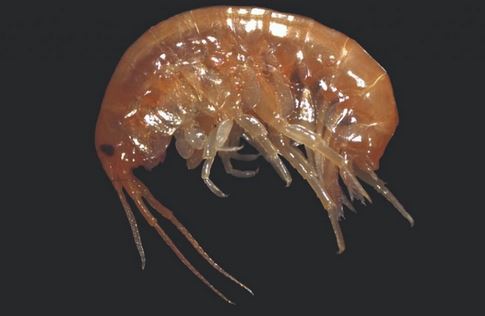
Ocean Census Unveils Identification of More Than 800 New Marine Species

# Ocean Census Uncovers More Than 800 New Marine Species, Including a Unique Guitar Shark
## A Milestone in Marine Exploration
The vast expanse of the world’s oceans remains significantly uncharted, with estimates suggesting that roughly **91% of marine species are yet to be identified**. In light of this enormous gap in knowledge, **Ocean Census**, a worldwide initiative co-founded in 2023 by **the Nippon Foundation and Nekton**, aims to boost the discovery of aquatic life. Merely two years into its journey, **Ocean Census has revealed the identification of over 800 new marine species**, highlighting the extent of what is yet to be discovered regarding marine biodiversity.
By uncovering the secrets of nature through a blend of deep-sea explorations and expert-led workshops, Ocean Census is supplying critical information to researchers, marine conservationists, and global decision-makers. The swift progress in species identification results from Ocean Census’ dedication to refining the scientific classification process.
## The Newly Found Guitar Shark and Its Importance
Among the most remarkable discoveries by Ocean Census is a **new guitar shark species**, located at a depth of about **200 meters (656 feet) off the coasts of Tanzania and Mozambique**. This shark represents only the **38th known species** of guitar shark, part of one of the ocean’s **10 most endangered vertebrate groups**.
Known for their unique body shape that combines traits of sharks and rays, guitar sharks are crucial to marine ecosystems. Unfortunately, their populations are declining due to habitat loss and overfishing. The discovery of this new species serves as a stark reminder of the **pressing necessity for marine conservation initiatives**.
## Other Significant Discoveries by Ocean Census
Alongside the guitar shark, Ocean Census has also recognized numerous other extraordinary species:
– **Turridrupa magnifica** – A newly identified **predatory gastropod** that uses venomous teeth to capture its prey. Related species have been pivotal in medical developments, including analgesic treatments.
– **Unnamed octocoral** – This **soft coral**, discovered in the Maldives, belongs to a rare genus, underscoring the **importance of coral reef preservation**.
– **Arctic Deep-Sea Starfish** – Located in the **Jøtul Vent Field of the Arctic**, this deep-sea organism is vital for nutrient cycling in one of the planet’s least explored areas.
– **Pygmy Pipehorse** – Found in South African waters, this species was thought to be exclusive to New Zealand.
– **Squat Lobster (Galathea sp.)** – Documented in the **southeastern Pacific near Easter Island**, marking the first time its genus has been discovered in this region.
– **A newly recognized mollusk** – Discovered in Tenerife, this species was officially described within **48 hours**, a stark contrast to the **global average of 13.5 years** required for species classification.
## Accelerating Species Identification
The conventional scientific approach to officially cataloging new species can exceed **ten years**, raising concerns that **many species might vanish before they are documented**. Ocean Census is committed to altering this paradigm by utilizing technology and expert collaborations to **speed up classification and conservation efforts**.
Beyond documenting new species, Ocean Census has launched the **Ocean Census Biodiversity Data Platform**, an online repository that is publicly accessible for researchers and the general public to explore newly classified marine organisms. This tool aims to enhance global awareness of ocean biodiversity and bolster conservation measures to protect at-risk species.
## What Lies Ahead for Ocean Census?
Looking forward, **Ocean Census has bold plans for 2025**, which include:
– **10 new marine expeditions** across the **Pacific, Indian, and Southern Oceans**
– **Seven further scientific workshops** to advance discoveries and classification
– Ongoing rapid documentation using the **Ocean Census Biodiversity Data Platform**
These initiatives will aid in creating a more detailed map of marine biodiversity while assisting scientists and conservationists in understanding how to **safeguard marine ecosystems from challenges posed by climate change, pollution, and overfishing**.
## Why Is This Important?
The identification of **over 800 new species in only two years** underscores how much remains to be uncovered in the ocean. **With marine species increasingly threatened by human activities, hastening the identification and safeguarding of new species is paramount**.
By illuminating **rare and previously unseen marine creatures**, Ocean Census is performing a vital function in global conservation efforts. Its findings remind us that the **deep sea contains countless mysteries**, and through sustained research, we can endeavor to **protect the rich biodiversity of our planet’s oceans.**
To keep informed about the latest discoveries, visit the [**Ocean Census website**](https://oceancensus.org/).